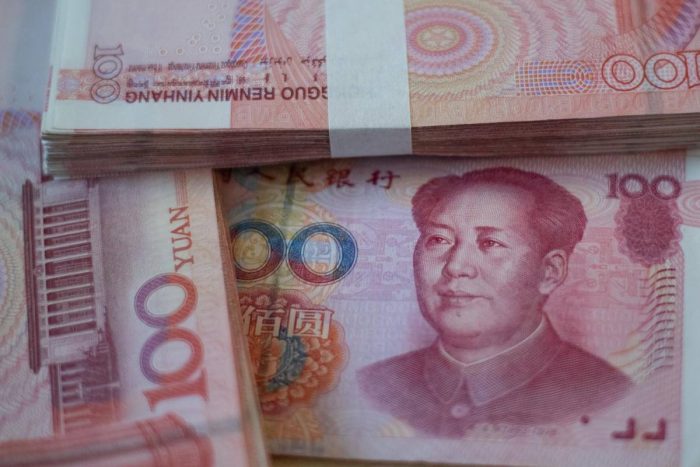Asia Times (Feb. 18) – China seems to have “done a one-eighty” on its stance on cryptocurrencies. Previously the authorities in the world’s second-largest economy were dismissive, to say the least, toward digital money.
Now, however, development of the digital yuan is “advancing significantly,” according to the country’s central bank.
Indeed, the People’s Bank of China said in a recent statement that the “processes of top-level design, setting industry standards, developing potential functions and integration testing” were “almost complete.”
The PBOC originally established a specialist task force back in 2014 to carry out research into cryptocurrencies, and also set up the Research Institute of Digital Currency. Yet work on the digital yuan accelerated when Facebook introduced its digital-currency project, Libra, last June.
This is quite a remarkable about-face. Former PBOC governor Zhou Xiaochuan was quoted as saying in 2018: “Lots of cryptocurrencies have seen explosive growth which can bring significant negative impact on consumers and retail investors. We don’t like [cryptocurrency] products that make huge opportunity for speculation that gives people the illusion of getting rich overnight.”
Fast-forward two years and, in contrast, the central bank has now filed more than 80 patents in relation to its aim of implementing a digital currency electronic payments (DCEP) system.
These patents are focused on designing protocols to control the issuance and supply of the country’s digital currency, in addition to a framework for carrying out interbank settlements and integration of the central bank digital currency (CBDC) with China’s current retail banking infrastructure.
As such, with China developing what has been defined as an “all-powerful cryptocurrency,” which could be ready this year and become the first sovereign digital currency in the world, the US – China’s economic rival – and other countries are seemingly being forced into following suit. In effect, China’s interest has, it would appear, put all major countries on notice.
A recent survey carried out by the Bank for International Settlements said that from January this year, 80% of central banks around the world are now involved in some form of CBDC work, a 10% increase over the last year.
Indeed, a think-tank of central bankers from Canada, Sweden, Switzerland and Japan, as well as the European Central Bank (ECB), is reportedly planning to hold its inaugural meeting in April.
In regard to the US, this month the chairman of the Federal Reserve, Jerome Powell, gave his monetary policy report to the House Financial Services Committee, followed by questions from Congress.
Powell stated: “Every major central bank is currently taking a deep look at that [central bank cryptocurrency]. We feel that’s our obligation, technology has now made that possible. I think it’s very much incumbent on us and other central banks to understand the costs and benefits and tradeoffs associated with a possible digital currency.”
Previously, a member of the board of governors of the Fed, Lael Brainard, indicated it is more open to the idea of a central bank digital currency than before, saying it is essential for the Fed to stay “on the frontier of research and policy development regarding CBDC.”
Brainard went on to talk about the fact that new digital payments, currency and settlement instruments are thriving, with Facebook’s Libra and China’s upcoming digital yuan momentous developments around the world.
Furthermore, the president of the Philadelphia Federal Reserve bank, Patrick Harker, recently stated it is “inevitable” for central banks to start issuing digital currency.
He added: “I am looking at the next five years after that. What comes next? I do think it is something around digital currency.”
Moreover, the central bank of South Korea is launching a second CBDC team, a year after the first group of digital-currency researchers split up.
The Bank of Korea (BOK) recently unveiled its plans to launch the new division to carry out CBDC-related research, in a purportedly direct response to China’s plan for a digital yuan. According to E Today reporter Kim Hye-mi: “The People’s Bank of China’s aggressive bid to break ‘dollar dominance’ by using its own digital currency is thought to have led to the BOK’s change of heart.”
Indeed, and as China advances with its digital yuan in order to break the so-called dollar dominance, it’s looking increasingly likely that the world’s second-largest economy will be able to reap the benefits of having the benchmark CBDC.
























